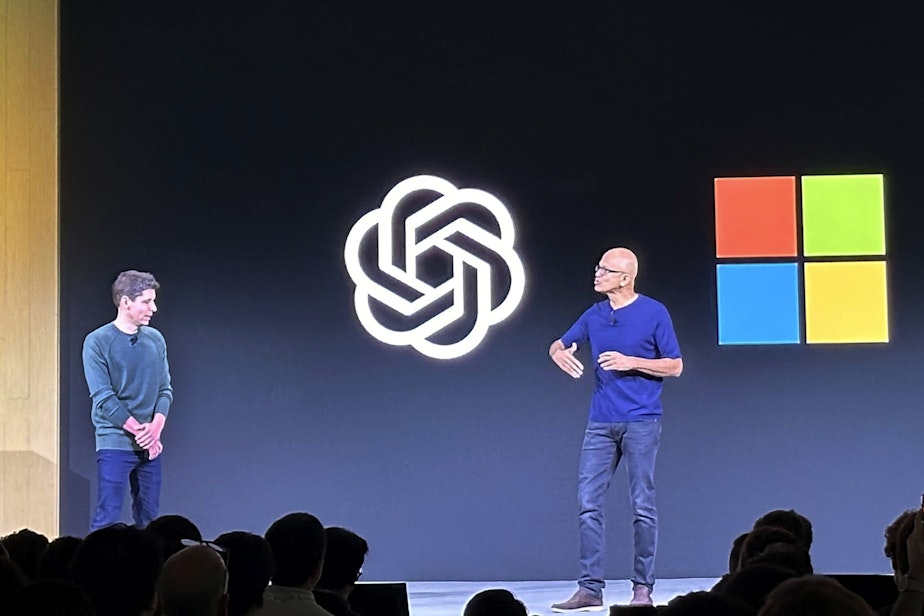NYT sues Microsoft, OpenAI for copyright infringement

Microsoft’s stock price and market cap increased by 50% in 2023, thanks largely to the company’s partnership with OpenAI and its big lead in artificial intelligence. But The New York Times says Microsoft is profiting on stolen work.
The newspaper is suing the Redmond tech giant, along with OpenAI, for copyright infringement. The lawsuit claims OpenAI’s ChatGPT was trained heavily on The New York Times' archive. The Times says that by building ChatGPT into Microsoft’s search engine, the company is illegally using copyrighted material to compete with the newspaper.
“These tools copy our journalism, reproduce and closely summarize our stories, and wrongly attribute false information to The Times,” said New York Times General Counsel Diane Brayton in an email to employees obtained by KUOW. “They are also designed to keep users within their own platforms, rather than sending readers to The Times.”
The New York Times is the first large media company to sue over copyright infringement via artificial intelligence. It’s the latest development in an increasingly tense relationship between booming Big Tech and the struggling media industry.
Other news organizations have sought to broker deals with developers of artificial intelligence to receive some compensation for their journalism. But The New York Times said in the complaint that its efforts to negotiate had been fruitless.
An OpenAI spokesperson offered a different perspective on the talks.
"Our ongoing conversations with the New York Times have been productive and moving forward constructively, so we are surprised and disappointed with this development," the spokesperson said in a statement to KUOW. "We’re hopeful that we will find a mutually beneficial way to work together, as we are doing with many other publishers.”
Seattle copyright attorney Tim Billick said it remains to be seen whether other publications with fewer resources will follow The New York Times' lead, or reach licensing agreements with AI companies.
"It's going to be a real challenge for smaller less-established news outlets to figure out if they should litigate, license, settle, or do nothing and just deal with it," he said.
As for The Times, Billick said the case for copyright infringement is strong. That's in part because The New York Times charges for content that Microsoft's search engine is allegedly giving away for free.
"I think copyright law would be very much on the side of The New York Times here, and I think OpenAI and Microsoft definitely have their work cut out for them," Billick said. "They have some explaining to do."
The complaint accuses Microsoft and OpenAI of seeking “to free-ride on The Times’s massive investment in its journalism by using it to build substitutive products without permission or payment.”
Sponsored
Microsoft did not respond to KUOW’s request to comment on the lawsuit, which was filed Wednesday in the Southern District of New York.
The Times is seeking “billions of dollars in statutory and actual damages” from Microsoft and OpenAI, according to the complaint.




